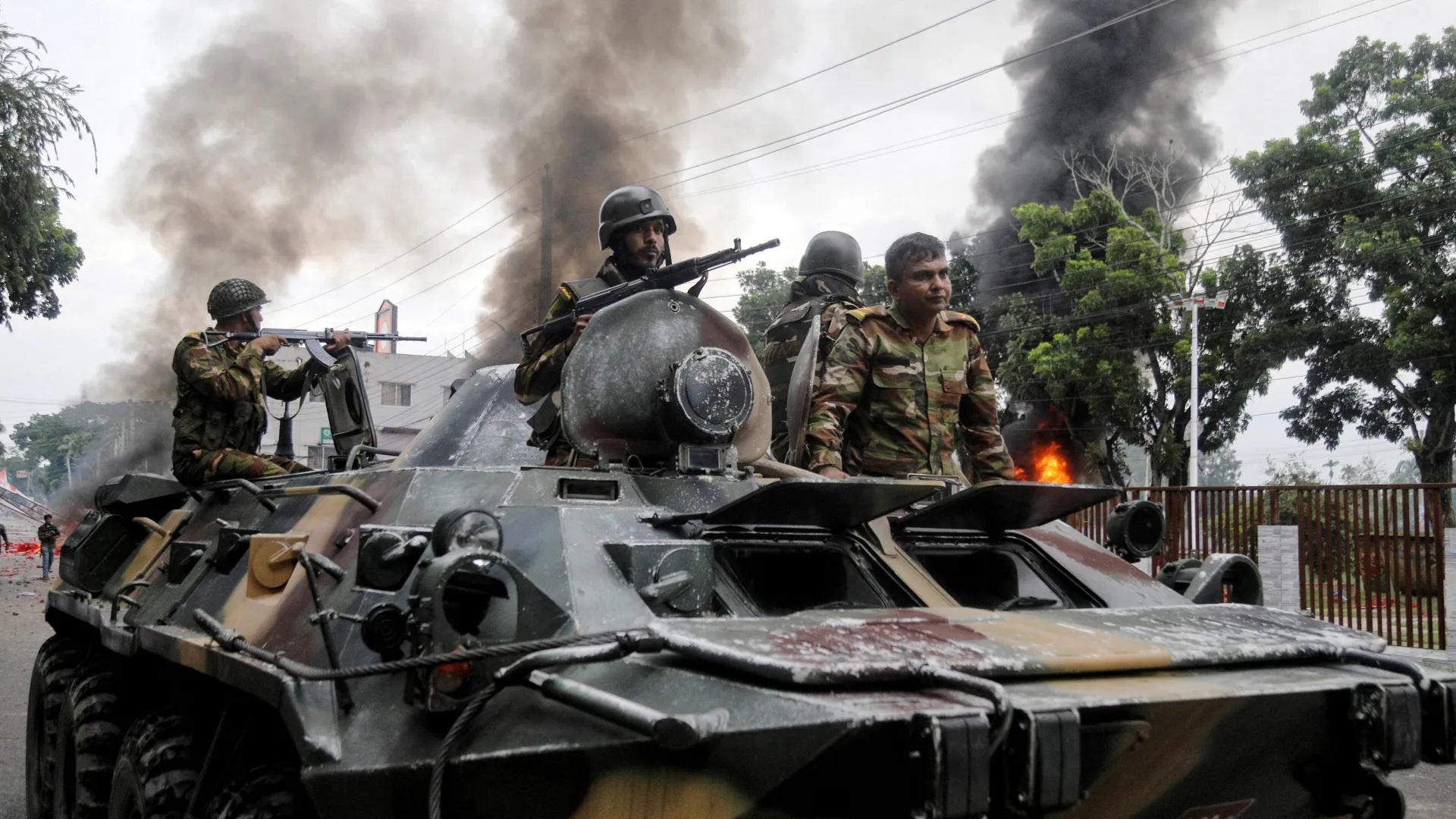Authorities in Bangladesh have ramped up security nationwide following deadly clashes between law enforcement and supporters of former Prime Minister Sheikh Hasina, which left four people dead and over 50 injured.
Local media say the violence has reignited fears of deeper political instability in the wake of Hasina’s ousting nearly a year ago.
Hundreds of police were stationed Thursday in the town of Faridpur, where the National Citizen Party (NCP), a newly formed political group led by student activists, had planned a rally.
The NCP played a central role in the mass protests that forced Hasina to resign last August after years in power.
Security officials say the heightened police presence was a precaution to prevent further unrest.
Tensions had already erupted a day earlier in Gopalganj, Hasina’s home district and a traditional stronghold of her Awami League party.
A peaceful NCP demonstration in the area quickly descended into violence when pro-Hasina supporters reportedly attempted to disrupt the rally.
Eyewitness accounts and footage from local media showed Awami League activists wielding sticks, clashing with police, and setting fire to vehicles as NCP leaders arrived for their “March to Rebuild the Nation” event.
According to reports, more than 1,500 security personnel, including members of the army and border guards, were deployed to manage the escalating violence.
Armed personnel carriers were seen patrolling the streets of Gopalganj as the situation worsened.
Authorities confirmed four deaths, identified by hospital officials as Dipto Saha, Ramzan Kazi, Sohel, and Emon; and said at least eight others were undergoing surgery for gunshot wounds.
Jahangir Alam Chowdhury, the interim government’s adviser on home affairs, stated that 10 police officers were also injured in the melee. He confirmed the arrest of 25 individuals in connection with the unrest.
By Thursday, Gopalganj had come to a standstill.
Local media described a tense calm, with closed shops, empty streets, and a strict curfew imposed by authorities to restore order.
Despite the heavy security, fears of renewed violence persist.
The recent turmoil underscores the deep political divisions that continue to plague Bangladesh nearly a year after Sheikh Hasina fled to exile in India aboard a helicopter.
The current interim government, led by Nobel laureate Muhammad Yunus, has struggled to bring lasting peace and unity to a fractured nation.
In a statement issued late Wednesday, Yunus condemned the attacks on the NCP rally as a “blatant violation of fundamental democratic rights” and vowed that those responsible would be held accountable.
The government has launched a formal investigation into the violence, to be led by Nasimul Ghani, a senior official from the Ministry of Home Affairs.
The inquiry committee has been given two weeks to present its findings.
While the government has pledged firm action, it is facing mounting criticism for failing to maintain order.
Opposition parties have used the incident to question the credibility of the interim administration.
The Awami League, which was officially banned in May, released several statements on the social media platform X.
It claimed that its members were the victims of the shootings and accusing the Yunus-led government of negligence and bias.
The Bangladesh Nationalist Party (BNP), one of the country’s two historically dominant political forces, also condemned the government’s handling of the situation.
It said the government had failed to uphold law and order.
Meanwhile, Jamaat-e-Islami, a right-wing Islamist party, issued a strong condemnation of the violence against the NCP and announced plans to stage its own protests.
Adding to the tensions, Hasina was recently indicted by the International Crimes Tribunal on charges of crimes against humanity for a deadly crackdown during the final days of her rule.
She has also been sentenced in absentia to six months in prison for contempt of court. Hasina remains in self-imposed exile in India.
With political divisions hardening and violence escalating, Bangladesh finds itself at a critical crossroads.
The interim government faces increasing pressure to restore stability and navigate the country toward free and fair elections, even as old rivalries continue to boil over into the streets.







